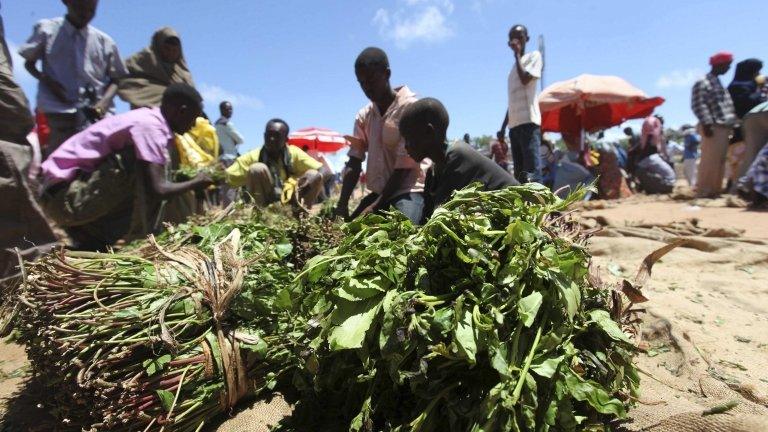Stimulant khat banned as illegal class C drug in UK
- Published
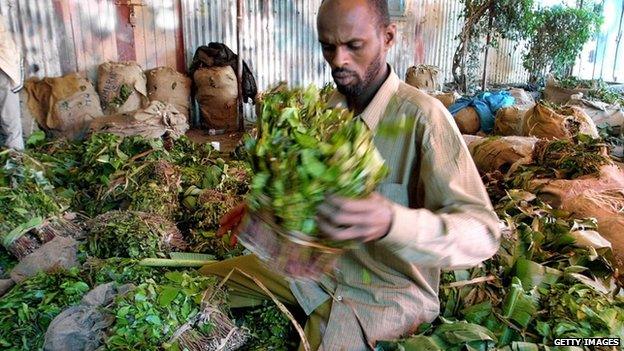
The ban comes into force from 24 June
Possessing khat, a plant used as a stimulant by Somali communities, has been made illegal in the UK.
The ban comes after members of Cardiff's Somali community previously called for khat to be outlawed while others say it does not have a negative effect.
But opponents to the ban say alcohol has a wider effect on people.
The move will stop the UK from becoming a hub for trafficking khat to countries where it is banned, says a minister.
Khat, which users say makes them feel more alert, happy and talkative when chewed, is now banned as a class C drug despite advice from the UK government's official advisers that it should not be classified, external.
Anne Soy in Kenya: ''Farmers who grow the crop mainly for the British market are worried''
However, Nasir Adam, a community regeneration officer in Cardiff, said he expected the majority of the city's Somali community would welcome the ban, saying excessive use has an effect on people's mental health and has caused the break-up of families.
He explained it was traditionally chewed by older men before its frequency of use increased and widened to younger members of the community.
And although he said the "community has been fighting for this" ban, he questioned whether police, health and council officials have done enough to prepare people for the change in law.

Hewete Haileselassie, BBC Africa:
Meru is a county where everyone seems to have one thing on their minds: The khat ban.
And for good reason. It's their main cash crop and many people's livelihoods depend on it.
This area is particularly hard hit because some farmers specialise in the type of khat that can be exported long distances.
Atherogaitu market, where most of the stimulant leaf destined for the UK passes through, was packed with people, young and old. Most were idle and chatting in groups.
Earlier in the morning many of those who would have been picking khat instead met at the marketplace and held a prayer session in the hopes of divine intervention to lift the ban.
Khat exporter Mattheus Githonga told us that the ban was "inhuman" and appealed to the UK government to "lift the ban, even for a year, so that we can prepare ourselves".
Another woman, Bessie Kathure, said: "I've lost all hope. I don't know how I'll feed my children and pay their school fees as a result of this ban."

National policing lead for drugs, Chief Constable Andy Bliss, said the police were working with healthcare providers and community leaders to ensure people are aware of the change in law and that there was support available to them.
In Bristol, almost 30 businesses previously selling khat say they may have to close as a result of the ban.
Danny Kushlick, director of Transform Drug Policy Foundation, a charitable think tank campaigning for the legal regulation of drugs, said it was unfair that khat was being banned whereas alcohol if used in excess.
"Yet again the government has ignored the advice of its experts and prohibited another drug," he said.
"As ever, it will serve to create a new income stream for organised crime.
"At the same time it will unnecessarily criminalise a minority group of Somalis and Yemenis, and deprive producers overseas of much needed legitimate revenue."
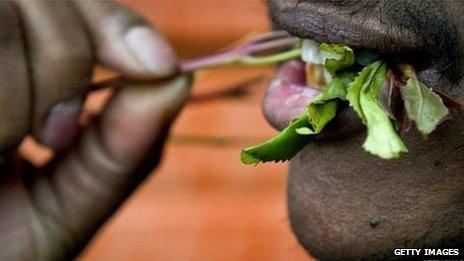
People found with khat for personal use could be fined £60
In a written statement, external last year, Home Secretary Theresa May said despite the recommendation of the Advisory Council on Misuse of Drugs (ACMD) not to ban khat, the body acknowledged that there was an absence of robust evidence in a number of areas.
She said the whole of northern Europe, most recently the Netherlands, and the majority of other EU member states have banned khat, as well as most of the G8 countries including Canada and the USA.
Mrs May said failure to take action in the UK would place the country at serious risk of becoming a single hub for the illegal onward trafficking of khat to countries where it is banned.
The ban comes into force from 24 June, external and means people found with khat for personal use could be fined £60 and those said to be "supplying" khat could receive up to a 14-year jail sentence.
- Published24 June 2014
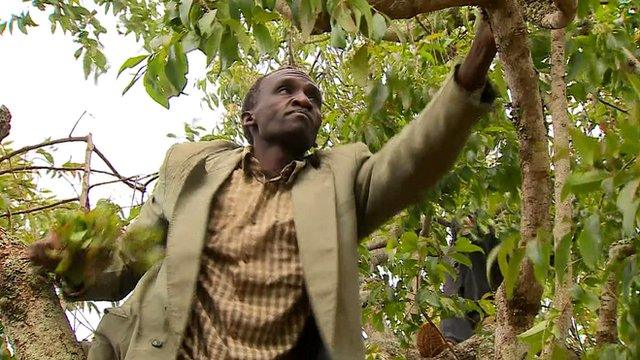
- Published23 June 2014
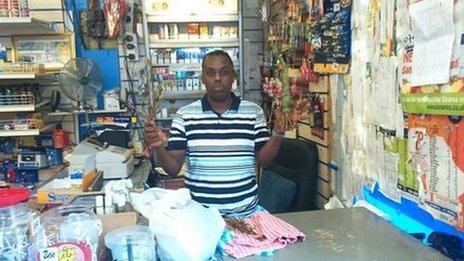
- Published21 June 2014
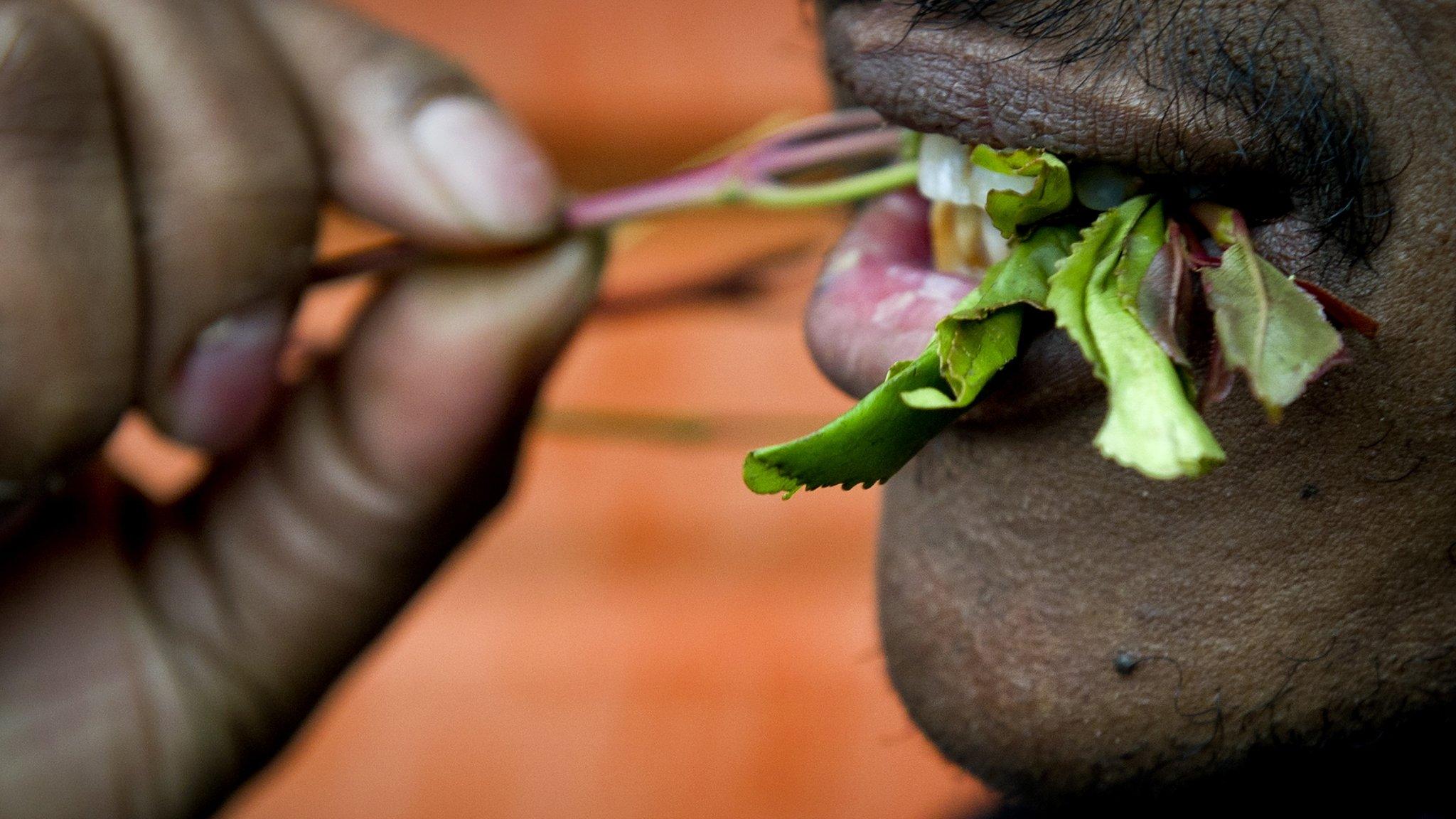
- Published27 May 2012
